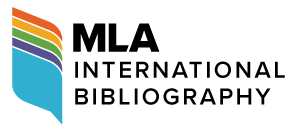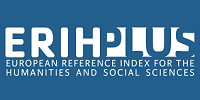‘Celui qui est digne d’être aimé’ by Abdellah Taïa : questioning masculinities
DOI:
https://doi.org/10.7203/HYBRIDA.7.27321Keywords:
Abdellah Taïa, Coloniality, Masculinities Abstract
Abstract
In Abdellah Taïa’s epistolary metafiction Celui qui est digne d’être aimé (2017), performativity makes it possible for male and female, European and Arab characters to consolidatemasculinist and racist oppressions. We advance the hypothesis of a double valence of masculinity in this narrative in order to analyze first, through the notion of « bloc hégémonique masculin » (Demetriou, 2015), the active role of Ahmed in the alterization of his identity as an Arab immigrant. We will then propose that the concept of hegemonic masculinity (Connell, 2015) remains a relevant operator for addressing Emmanuel’s orientalist motivations. We try to demonstrate finally that Ahmed’s identification with oppressed female characters, combined with his judgment of André Gide’s sexual engagement with an Arab adolescent, allows him to break with oppressive Orientalist masculinity and remove the white mask (Fanon, 1952) of an upstart and integrated gay African immigrant. We will demonstrate thattheme on masculinities is recurrent in the work of Abdellah Taïa and that que Celui qui est digne d’être aimé, like a decolonial novel, constitutes a political turning point through which the author associates masculinity with European orientalism.
 Downloads
Downloads
 References
References
Boidin, Capucine. (2009). Études décoloniales et postcoloniales dans les débats français. Cahiers des Amériques Latines, 62, 129–140. https://doi.org/10.4000/cal.1620
Butler, Judith. (2010). Ce qui fait une vie : essai sur la violence, la guerre et le deuil. Zones.
Butler, Judith. (1990). Trouble dans le genre. La Découverte.
Connell, Raewyn. (2015). Hégémonie, masculinité, colonialité. Genre, Sexualité & Société, 13. https://doi.org/10.4000/gss.3429
Demetriou, Demetrakis Z. (2015). La masculinité hégémonique : lecture critique d’un concept de Raewyn Connell. Genre, sexualité & société, 13. https://doi.org/10.4000/gss.3546
Fanon, Frantz. (1952). Peau noire, masques blancs. Seuil.
Foucault, Michel. (1975). Surveiller et punir. Naissance de la prison. Gallimard.
Gouyon, Marien. (2018). Circuler pour aimer, aimer pour circuler : Le « travail émotionnel » de l’amour entre hommes comme ressource migratoire vers la France et Dubaï. Migrations Société, 173(3), 65–78. https://doi.org/10.3917/migra.173.0065
Heyndels, Ralph. (2020). « Je suis un Indigène de la République » : l’atelier décolonial de l’écriture d’Abdellah Taïa. In Ralph Heyndels ; Amine Zidouh, (Dirs.), Autour d’Abdellah Taïa : poétique et politique du désir engagé / Around Abdellah Taïa : Poetics and Politics of Engaged Desire (pp. 117–145). Passages.
Lacan, Jacques. (2001). Autres écrits. Seuil.
Masson, Sabine, & Thiers-Vidal, Léo. (2002). Pour un regard féministe matérialiste sur le queer: Échanges entre une féministe radicale et un homme anti-masculiniste. Mouvements, 20(2), 44–49. https://doi.org/10.3917/mouv.020.0044
Ncube, Gibson. (2019). « Un homme qui a oublié d’être un homme » : la masculinité dans l’œuvre autofictionnelle d’Abdellah Taïa. French Studies in Southern Africa, (49), 162–180. https://hdl.handle.net/10520/EJC-1d6b25ae28
Said, Edward W. (2005). Orientalisme. L’Orient créé par l’Occident. Points.
Taïa, Abdellah. (2006). L’Armée du salut. Seuil.
Taïa, Abdellah. (2012). Le Rouge du tarbouche. Seuil.
Taïa, Abdellah. (2017). Celui qui est digne d’être aimé. Seuil.
Vilarino, Júnior. (2021). A escrita corsária de Abdellah Taïa. Alea-Estudos Neolatinos, 23(2), 30–44. https://doi.org/10.1590/1517-106x/20212323044
Published
How to Cite
-
Abstract300
-
HTML (Français )154
-
PDF (Français )111
Issue
Section
License
![]()
All the documents in the OJS platform are open access and property of their respective authors.
Authors publishing in the journal agree to the following terms:
- Authors keep the rights and guarantee HYBRIDA the right to be the first publication of the document, licensed under a Creative Commons license Attribution-NonCommercial-ShareAlike 4.0 International (CC BY-NC-SA 4.0) that allows others to share the work with an acknowledgement of authorship and publication in the journal.
- Authors are allowed and encouraged to spread their work (once published) through electronic means using personal or institutional websites (institutional open archives, personal websites or professional and academic networks profiles) once the text has been published.
















